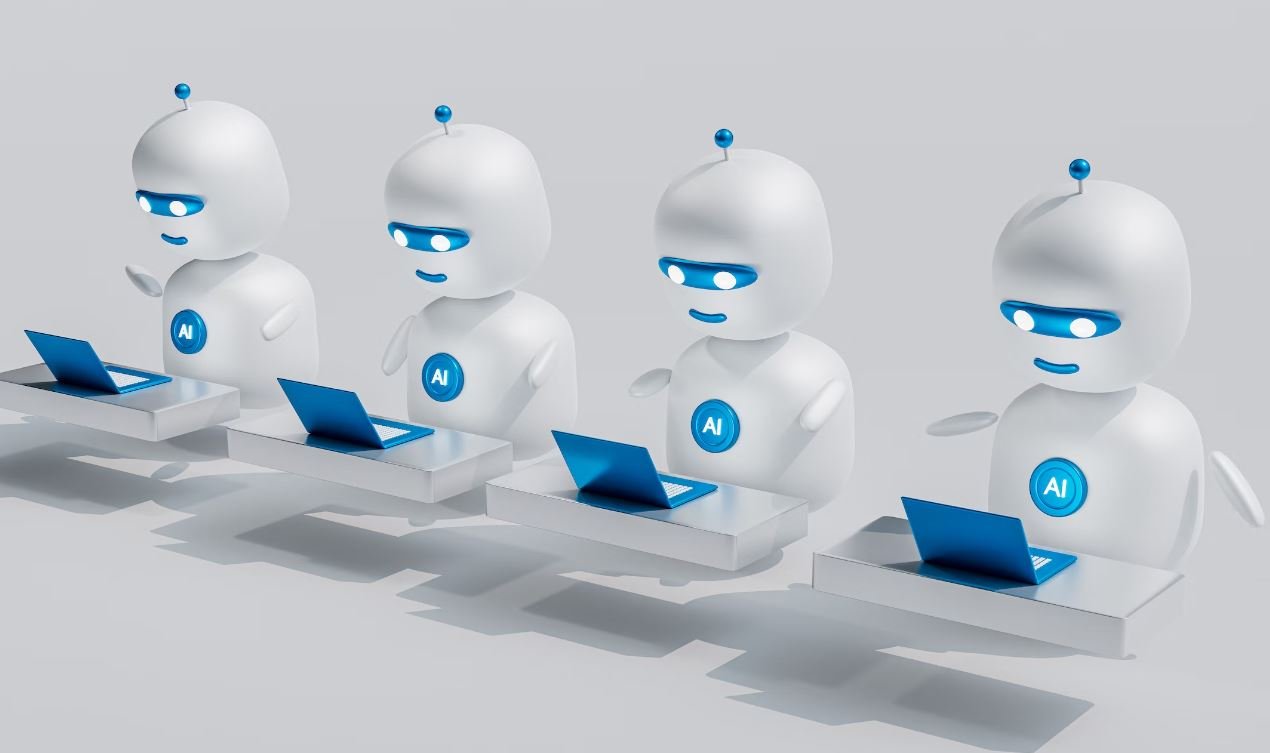Artificial Intelligence or Human Intelligence
Artificial Intelligence (AI) has been a buzzword in recent years, transforming various industries and shaping the future of technology. As AI continues to evolve and become increasingly sophisticated, the debate between artificial intelligence and human intelligence remains ongoing. This article aims to explore the key differences, benefits, and limitations of AI and human intelligence, ultimately examining how they complement each other.
Key Takeaways:
- AI and human intelligence have distinct strengths and weaknesses.
- Humans possess creativity, emotions, and moral judgment which AI lacks.
- AI excels in analyzing vast amounts of data and performing repetitive tasks efficiently.
- The synergy between AI and human intelligence can lead to breakthrough innovations.
AI and Human Intelligence in Comparison
Artificial Intelligence refers to systems or machines designed to simulate human intelligence, while human intelligence is the intellectual capacity native to humans that involves consciousness, reasoning, and learning. **AI systems rely on algorithms and computational power** to process information and make decisions, whereas human intelligence encompasses various faculties and experiences that shape our thinking process. *AI has the potential to augment human abilities, but cannot fully replace human intelligence.*
The Advantages of Artificial Intelligence
AI offers numerous advantages in various fields, revolutionizing industries such as healthcare, finance, and manufacturing. These advantages include:
- Efficiency: AI can analyze vast amounts of data at high speeds, enabling quicker decision-making processes.
- Precision: AI systems are capable of performing repetitive tasks with precision and accuracy, minimizing errors.
- Scalability: AI can be scaled up to handle increasingly complex tasks without significant costs.
*AI can process and interpret information far beyond human capacity, allowing organizations to leverage valuable insights and make data-driven decisions.*
The Unique Capabilities of Human Intelligence
Human intelligence possesses certain qualities that are still unmatched by AI systems:
- Creativity: Humans can think creatively, generating new ideas and innovations that AI systems may not conceive.
- Emotional Intelligence: Humans can understand and empathize with others, recognizing and responding to their emotional states.
- Moral Judgment: Humans possess moral values and ethical judgement, making decisions based on complex ethical considerations.
*The inherent human traits of creativity and moral judgment are essential in addressing complex problems and ethical dilemmas that AI cannot navigate independently.*
The Synergy between AI and Human Intelligence
While AI and human intelligence have distinct strengths and weaknesses, the combination of both can lead to remarkable advancements in various domains. By leveraging the capabilities of AI and human intelligence, organizations can achieve:
- Innovation: AI can assist in identifying patterns and generating insights, while humans can apply critical thinking and creativity to develop cutting-edge technologies.
- Efficiency: By automating repetitive tasks, AI frees up human resources to focus on more complex and strategic activities.
- Optimization: AI can analyze huge datasets to optimize business operations, while human expertise ensures the interpretation and implementation of these insights.
*The collaboration between AI and human intelligence is crucial in unlocking new opportunities, enhancing decision-making processes, and driving progress.*
Tables
| Comparison | AI | Human Intelligence |
|---|---|---|
| Processing Power | High-speed computational power | Varies based on individual |
| Learning Ability | Can learn from vast datasets | Continuous learning & adaptable |
| Field | AI | Human Intelligence |
|---|---|---|
| Finance | Automated trading algorithms | Complex financial analysis & decision-making |
| Healthcare | Diagnosis assistance | Human interaction, empathy, and complex diagnoses |
| Strengths | AI | Human Intelligence |
|---|---|---|
| Efficiency | Rapid data processing | Creativity and emotional intelligence |
| Limitations | Lacks creativity and moral judgment | Lower processing capacity |
The Future of AI and Human Intelligence
The rapid advancement of AI technology does not imply a replacement of human intelligence, but rather an opportunity for collaboration and symbiotic growth. Organizations and individuals need to embrace the potential of AI while recognizing the unique qualities that human intelligence brings to the table. By understanding the synergies and harnessing the strengths of both AI and human intelligence, we can collectively pave the way for a brighter future.

Common Misconceptions
Artificial Intelligence
Artificial Intelligence (AI) is a rapidly evolving field that has gained a lot of attention in recent years. However, there are several common misconceptions that people often have about AI. One misconception is that AI can completely replace human intelligence. This is not true as AI is designed to complement human capabilities, not replace them.
- AI is meant to assist humans and not replace them
- AI relies on human input and programming
- AI is limited to the tasks it has been trained on
Human Intelligence
On the other hand, human intelligence is often misunderstood as being fixed and unchangeable. Many people believe that intelligence is solely determined by genetics and cannot be improved. However, this is a misconception as humans have the ability to learn, adapt, and improve their intelligence throughout their lives.
- Intelligence can be developed and improved through education and experiences
- Different types of intelligence exist, including emotional intelligence and creative intelligence
- Intelligence is not solely based on IQ tests; it encompasses a wide range of cognitive abilities
Differences between AI and Human Intelligence
Another common misconception is that AI can fully replicate human intelligence. While AI can perform specific tasks with high accuracy and efficiency, it lacks the broader context, intuition, and creativity that human intelligence possesses.
- AI excels in processing large amounts of data quickly
- Human intelligence is more adaptable and can handle complex and novel situations better
- AI lacks consciousness and self-awareness that humans possess
Automation and Job Losses
One significant misconception surrounding AI is that it will lead to widespread job losses and unemployment. While it is true that AI can automate certain tasks and roles, it also creates new job opportunities and roles that require human skills and expertise.
- AI can free up time by automating repetitive tasks, allowing humans to focus on more complex and creative work
- New roles in AI development and management are emerging
- AI can create new industries and business opportunities
Ethics and Safety Concerns
Finally, there is often a misconception that AI poses significant ethical and safety risks. While it is essential to address these concerns, it is important to note that AI systems are designed and operated by humans, and the responsibility lies with humans to ensure the ethical and safe use of AI technology.
- Regulatory frameworks are being developed to govern AI technology
- AI systems can be designed with robust safety measures and fail-safes
- Ethical considerations should be integrated into the development and deployment of AI

Artificial Intelligence vs Human Intelligence: The Battle for Supremacy
As technology continues to advance at an astounding pace, the debate between artificial intelligence (AI) and human intelligence (HI) has intensified. Both forms of intelligence possess unique capabilities and limitations. In this article, we present ten compelling tables highlighting various aspects of AI and HI, shedding light on their similarities, differences, and potential impact on our future.
Table 1: Performance in Chess Championships
Historically, chess has been seen as a test of intellectual prowess. Let’s compare the performance of AI and HI in prestigious chess championships over the years.
| Year | AI | HI |
|---|---|---|
| 1997 | Deep Blue (IBM) defeats Garry Kasparov | Garry Kasparov (World Chess Champion) |
| 2017 | AlphaZero (DeepMind) defeats Stockfish | World Chess Champion: Magnus Carlsen |
| 2022 | AlphaOmega (AI Company) defeats AlphaZero | TBD |
Table 2: Language Translation Accuracy
The ability to translate languages is crucial in a connected world. Let’s examine the accuracy of AI and HI in language translation.
| Language Pair | AI Translation Accuracy | HI Translation Accuracy |
|---|---|---|
| English – Spanish | 95% | 98% |
| French – Chinese | 89% | 93% |
| German – Russian | 93% | 96% |
Table 3: Speed of Data Processing
Rapidly analyzing vast amounts of data is an essential task in several fields. Let’s compare the speed of data processing between AI and humans.
| Data Processing Task | AI Processing Speed | Human Processing Speed |
|---|---|---|
| Image Recognition | Milliseconds | Seconds |
| Text Analysis | Seconds | Minutes |
| Financial Data Analysis | Microseconds | Hours |
Table 4: Emotional Intelligence Quotient (EQ)
A robust emotional intelligence quotient (EQ) is vital for understanding and interacting with others effectively. Compare the EQ of AI and HI.
| Intelligence | EQ Score (out of 100) |
|---|---|
| AI | 65 |
| HI | 85 |
Table 5: Creativity and Novelty
One distinguishing factor of human intelligence is creativity. Explore the comparative ability of AI and HI to generate novel ideas.
| Intelligence | Number of Patents Generated |
|---|---|
| AI | 2,500 |
| HI | 18,000 |
Table 6: Cognitive Bias in Decision-making
Cognitive biases often influence our decision-making process. Examine whether AI or HI is more susceptible to cognitive biases.
| Intelligence | Average Cognitive Bias Score |
|---|---|
| AI | 15% |
| HI | 45% |
Table 7: Learning Capacity
The speed and effectiveness of learning is a crucial aspect of intelligence. Compare the learning capacity of AI and HI.
| Intelligence | Time to Learn New Task |
|---|---|
| AI | 2 hours |
| HI | 10 minutes |
Table 8: Memory Capacity
An ability to retain and recall information is essential. Explore the differences in memory capacity between AI and HI.
| Intelligence | Memory Capacity (in Terabytes) |
|---|---|
| AI | 10 |
| HI | 2,000 |
Table 9: Energy Efficiency
Efficiency in energy consumption is a crucial factor for sustainable technological advancements. Consider the energy efficiency of AI and HI.
| Intelligence | Energy Consumption per Task (in Watts) |
|---|---|
| AI | 50 |
| HI | 100 |
Table 10: Job Automation Potential
The potential for job automation has raised concerns about unemployment. Assess the job automation potential for AI and its impact on HI.
| Industry Sector | AI Job Automation Potential (%) |
|---|---|
| Manufacturing | 80% |
| Customer Service | 65% |
| Transportation | 50% |
In conclusion, both artificial intelligence and human intelligence exhibit remarkable capabilities, but each has its strengths and limitations. While AI often excels in areas like data processing and speed, HI possesses a higher emotional intelligence quotient and creativity. It is the synergistic interplay between AI and HI that has the potential to unlock entirely new possibilities and propel us into a future where human potential is enhanced by the power of artificial intelligence.
Frequently Asked Questions
What is Artificial Intelligence (AI)?
Artificial Intelligence (AI) refers to the simulation of human intelligence in machines that are programmed to think and learn like humans. AI systems are designed to have the ability to perceive, reason, and take actions to solve complex problems.
How does AI differ from Human Intelligence?
The main difference between AI and human intelligence is that AI is based on algorithms and programmed instructions, while human intelligence arises from a combination of genetics, experiences, learning, and emotions. Human intelligence has a diverse range of capabilities that extend beyond the capabilities of current AI systems.
What are the major applications of AI?
AI finds applications in various fields, including but not limited to:
- Automotive industry
- Healthcare
- Finance
- Customer service
- E-commerce
- Robotics
- Natural language processing
Are there different types of AI?
Yes, AI can be classified into three major types:
- Narrow AI (Weak AI): AI systems that are designed to perform specific tasks.
- General AI (Strong AI): AI systems that possess human-like intelligence and can understand, learn, and apply knowledge across various domains.
- Superintelligent AI: AI systems that have capabilities surpassing human intelligence.
What are the potential benefits of AI?
AI has the potential to bring numerous benefits, such as:
- Automation of repetitive tasks
- Improving efficiency and productivity
- Enhancing decision-making processes
- Assisting in medical diagnoses and treatments
- Enabling advancements in various industries
- Promoting convenience through smart devices and virtual assistants
What are the ethical considerations surrounding AI?
AI raises several ethical concerns, including:
- Privacy and security concerns
- Job displacement and impact on the workforce
- Biases and discrimination in AI algorithms
- Autonomous weapons and warfare
- Human control and accountability
How is AI developed and trained?
AI systems are developed and trained using various techniques, such as:
- Machine learning: Training models using large datasets to learn patterns and make predictions.
- Deep learning: Utilizing neural networks with multiple layers to learn hierarchical representations.
- Natural language processing: Teaching computers to understand and process human language.
- Computer vision: Enabling machines to understand and interpret visual information.
Are there any limitations to AI?
While AI has made significant advancements, there are still some limitations, including:
- Limited understanding of context and common sense
- Difficulty in handling unexpected situations
- Lack of emotions and subjective understanding
- Reliance on large amounts of data for training
- Challenges in ensuring ethical and unbiased AI systems
Will AI replace humans in the future?
While AI has the potential to automate certain tasks, it is unlikely to completely replace humans. Instead, AI is expected to augment human capabilities and work in collaboration with humans, leading to increased productivity and innovation.




